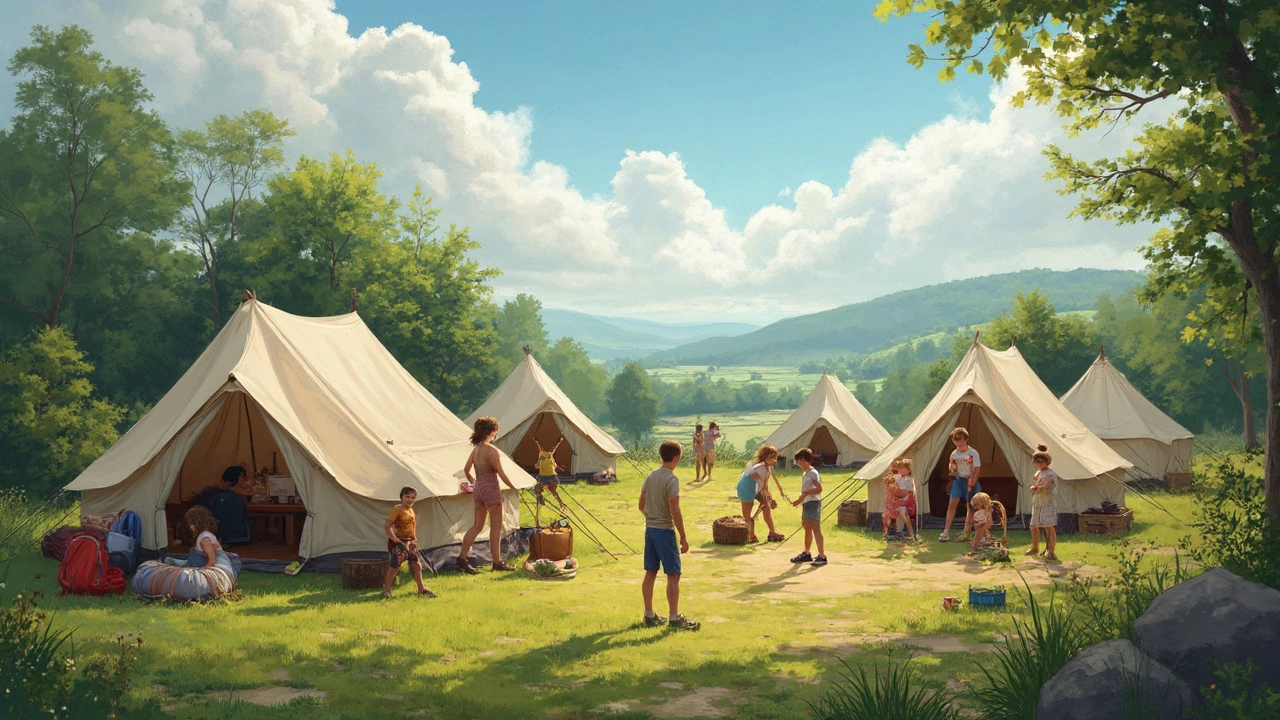Nature Hazards: What Every Camper Should Know
Camping is freedom on four wheels or under a tent, but nature can throw surprises your way. From sudden rainstorms to hidden tides, knowing the risks lets you enjoy the outdoors without a scare.
Common Natural Risks When Camping
Weather changes fast in the UK. A clear sky can turn into a squall in minutes, so keep a weather app handy and pack a waterproof jacket even on sunny days. Flood‑prone spots near rivers or coastal campsites need extra caution – a rising tide can swallow a beach campsite you set up in the morning.
Wildlife is another factor. While spotting deer or birds is great, some animals can be dangerous if you get too close. Seals on beaches may seem friendly, but they can bite if they feel threatened. In upland areas, add a bear‑proof (or rather, fox‑proof) food storage solution to avoid unwanted visitors.
Terrain hazards also matter. Rocky ground can cause twisted ankles, and hidden puddles around woods can be deeper than they look. When you pitch a cowboy camp or any off‑grid spot, always scout the ground first – look for loose stones, roots, and drainage patterns.
Practical Tips to Reduce Hazards
Start with a quick risk checklist before you leave home. Check the forecast, note any local flood warnings, and review the campsite’s rules about beach camping or wildlife protection. If you’re planning to stay on a beach, learn the local byelaws – some areas forbid overnight tents, and breaking the rule can lead to fines.
Set up your tent on higher ground away from vegetation that can catch fire. Use a ground tarp to keep moisture out and to protect the soil. Keep a basic first‑aid kit, a whistle, and a flashlight with fresh batteries within reach.
When dealing with wildlife, store food in sealed containers and lock them in your motorhome or campervan. If you’re cooking, clean up all scraps right away. This simple habit cuts down on curious animals turning up at night.
Finally, respect the environment. Picking up seashells may seem harmless, but it can damage fragile marine ecosystems. Stick to designated paths and leave nature as you found it – the less you disturb, the safer you and the wildlife stay.
With a little preparation, you can turn nature’s challenges into part of the adventure. Stay aware, follow local rules, and enjoy the freedom that comes with a safe, hazard‑smart camping trip.
How Risky Is Camping? A Real Look at Staying Safe Outdoors
Camping with family sounds straightforward, but it’s not always a walk in the park. This article breaks down real risks at family campsites, from weather surprises to wildlife encounters. You'll get facts on what actually causes most injuries and what you can do to dodge them. With first-hand tips and surprising stats, the goal is to make your trip safe and fun. Forget scare tactics—this is your no-nonsense camping safety checklist.
